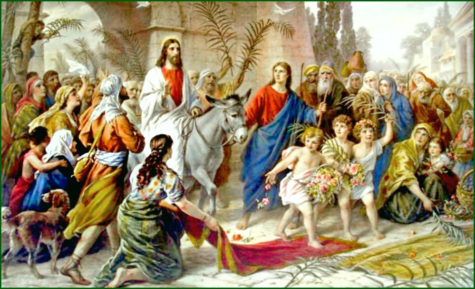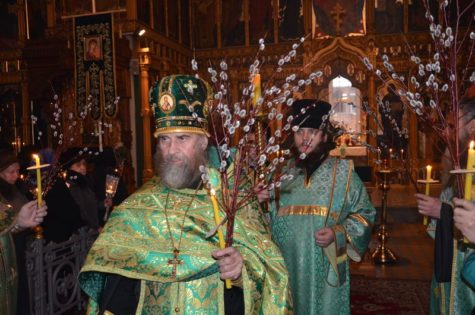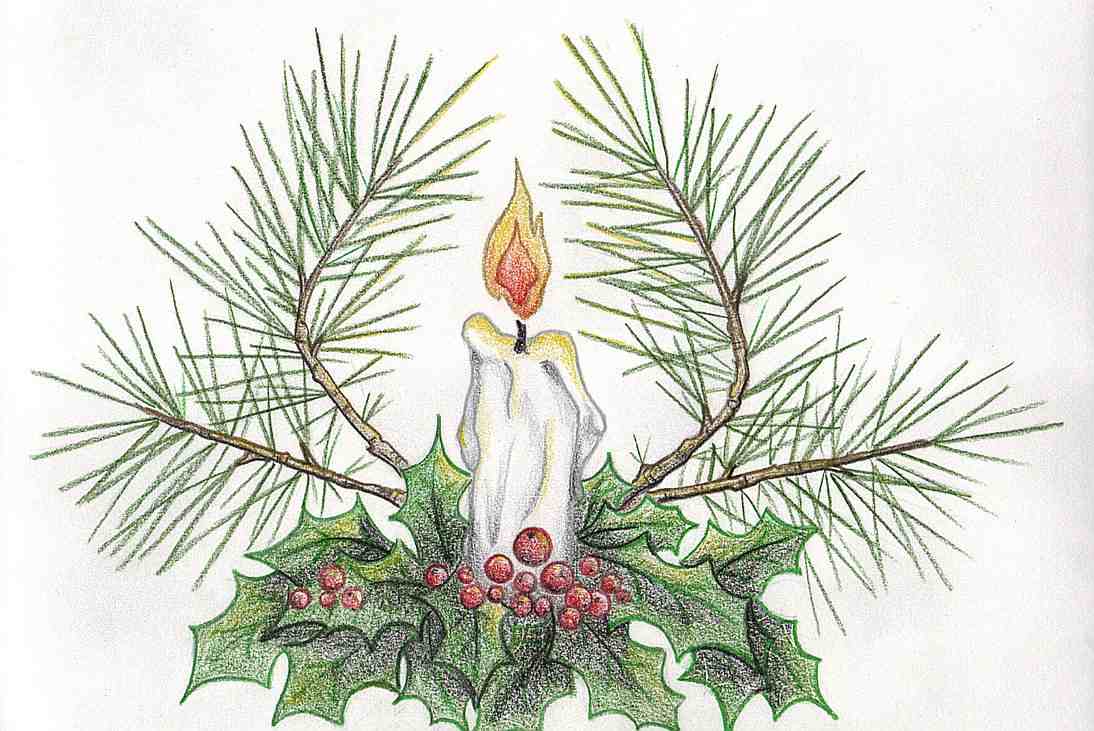Palm Sunday is a Christian moveable feast that falls on the Sunday before Easter. The feast commemorates Jesus’ triumphal entry into Jerusalem, an event mentioned in each of the four canonical Gospels.
In many Christian denominations, worship services on Palm Sunday include a procession of the faithful carrying palms, representing the palm branches the crowd scattered in front of Jesus as he rode into Jerusalem. The difficulty of procuring palms in unfavorable climates led to their substitution with branches of native trees, including box, olive, willow, and yew. The Sunday was often named after these substitute trees, as in Yew Sunday, or by the general term Branch Sunday.
In the Greco-Roman culture of the Roman Empire, which strongly influenced Christian tradition, the palm branch was a symbol of triumph and victory. It became the most common attribute of the goddess Nike or Victory. For contemporary Roman observers, the procession would have evoked the Roman triumph, when the triumphator laid down his arms and wore the toga, the civilian garment of peace that might be ornamented with emblems of the palm.
Although the Epistles of Paul refer to Jesus as “triumphing”, the entry into Jerusalem may not have been regularly pictured as a triumphal procession in this sense before the 13th century. In ancient Egyptian religion, the palm was carried in funeral processions and represented eternal life. The palm branch later was used as a symbol of Christian martyrs and their spiritual victory or triumph over death.
Variations of the traditional observances:
In Latvia, Palm Sunday is called “Pussy Willow Sunday”, and pussy willows – symbolizing new life – are blessed and distributed to the faithful. Children are often awakened that morning with ritualistic swats of a willow branch.
In Bulgaria, Palm Sunday is known as Tsvetnitsa (tsvete, “flower”) or Vrabnitsa (varba, “willow”), or Flower’s Day. People with flower-related names (e.g., Lilia, Margarita, Nevena, Ralitsa, Rosa, Temenuzhka, Tsvetan, Tsvetana, Tsvetelin, Tsvetelina, Tsvetko, Violeta, Yavor, Zdravko, Zjumbjul, etc.) celebrate this day as their name day.
In Finland, it is popular for children to dress up as Easter witches and go door to door in neighborhoods for coins and candy. This is an old Karelian custom called Virpominen.
In the 15th through the 17th centuries in England, Palm Sunday was frequently marked by the burning of Jack-‘o’-Lent figures. This was a straw effigy which would be stoned and abused on Ash Wednesday, and kept in the parish for burning on Palm Sunday. The symbolism was believed to be a kind of revenge on Judas Iscariot, who had betrayed Christ. The effigy could also have represented the hated figure of Winter, whose destruction prepares the way for Spring.
In Oriental Orthodox churches, palm fronds are distributed at the front of the church at the sanctuary steps, in India the sanctuary itself having been strewn with marigolds, and the congregation proceeds through and outside the church.
In the Church of Pakistan (a member of the Anglican Communion), the faithful on Palm Sunday carry palm branches into the church as they sing Psalm 24.
In many Protestant churches, children are given palms, and then walk in procession around the inside of the church.
In Hoegaarden, Belgium one of the last remaining Palm Sunday processions takes place every year. A fellowship of Twelve Apostles carries a wooden statue of Christ around the town, while children go door to door offering the palms (box) for coins.
In Italy, palm leaves are used along with small olive branches, readily available in the Mediterranean climate. These are placed at house entrances (for instance, hanging above the door) to last until the following year’s Palm Sunday. For this reason, usually palm leaves are not used whole, due to their size; instead, leaf stripes are braided into smaller shapes. Small olive branches are also often used to decorate traditional Easter cakes, along with other symbols of birth, like eggs.
When Christianity came to Lithuania, the plants which sprouted earliest were honored during spring feasts. The “verba” or “dwarfed spuce” is used instead. According to tradition, on the Saturday before Palm Sunday the Lithuanians take special care in choosing and cutting well-formed branches, which the women-folk decorate with flowers. The flowers are meticulously tied onto the branches, making the “Verba”
In the Saxon regions of the Netherlands, crosses are decorated with candy and bread, made in the form of a rooster. In the Diocese of Groningen-Leeuwarden, a great procession with oil lamps is held the night before Palm Sunday in honor of the Sorrowful Mother of Warfhuizen.
Many Polish towns and villages (the best known are Lipnica Murowana in Małopolska and Łyse) organize artificial palm competitions. The biggest of those reach above 30 meters in length; for example, the highest palm in 2008 was 33.39 meters.
In Elche, Spain, the location of Palmeral of Elche (the biggest palm grove in Europe), there is a tradition of tying and covering palm leaves to whiten them away from sunlight, and then drying and braiding them in elaborate shapes. A Spanish rhyming proverb states:
Domingo de Ramos,
quien no estrena algo,
se le caen las manos
On Palm Sunday,
the hands drop off of those who fail to wear something new.
In Wales, Palm Sunday in called ‘Sul y Blodau’ (‘Flowering Sunday’) and it is traditional to decorate graves with flowers on that day, especially in the industrial towns and villages of south Wales.
Source: Wikipedia
Krazelna: Day of Hekate
Krazelna: Day of Hekate
Krazelna: Day of Hekate
Rachel V Perry: Emancipation Day
Rachel: The Nemesia





Leave a Reply